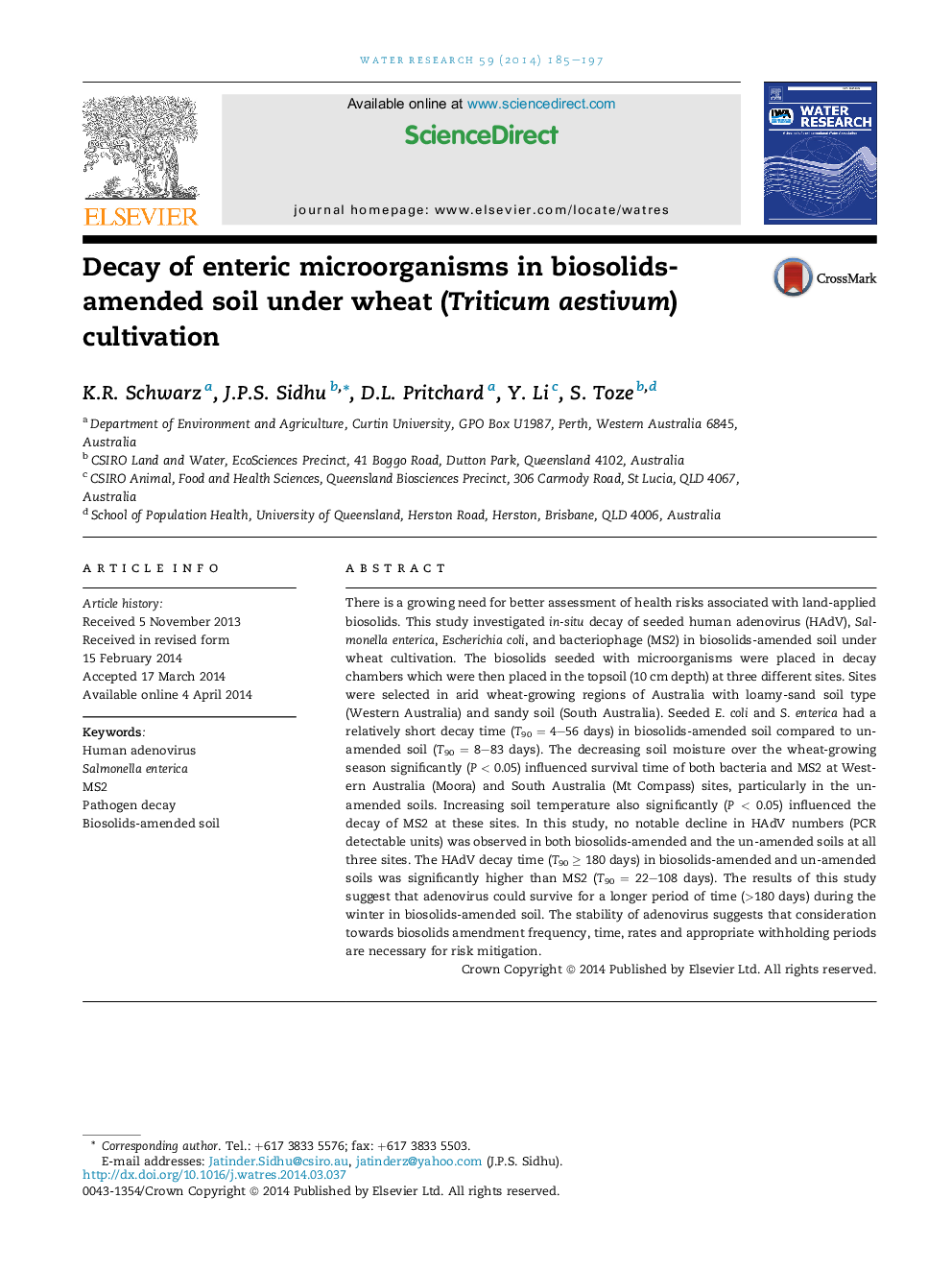| کد مقاله | کد نشریه | سال انتشار | مقاله انگلیسی | نسخه تمام متن |
|---|---|---|---|---|
| 4481538 | 1623109 | 2014 | 13 صفحه PDF | دانلود رایگان |

• Escherichia coli and Salmonella enterica decayed faster in biosolids amended soil than un-amended soil.
• Human adenovirus and other enteric virus are expected to survive for a longer period of time at low ambient temperature.
• MS2 may not be a suitable indicator for assessment of survival potential of adenovirus.
• Longer survival time for adenovirus suggests that appropriate withholding periods are necessary for risk mitigation.
There is a growing need for better assessment of health risks associated with land-applied biosolids. This study investigated in-situ decay of seeded human adenovirus (HAdV), Salmonella enterica, Escherichia coli, and bacteriophage (MS2) in biosolids-amended soil under wheat cultivation. The biosolids seeded with microorganisms were placed in decay chambers which were then placed in the topsoil (10 cm depth) at three different sites. Sites were selected in arid wheat-growing regions of Australia with loamy-sand soil type (Western Australia) and sandy soil (South Australia). Seeded E. coli and S. enterica had a relatively short decay time (T90 = 4–56 days) in biosolids-amended soil compared to un-amended soil (T90 = 8–83 days). The decreasing soil moisture over the wheat-growing season significantly (P < 0.05) influenced survival time of both bacteria and MS2 at Western Australia (Moora) and South Australia (Mt Compass) sites, particularly in the un-amended soils. Increasing soil temperature also significantly (P < 0.05) influenced the decay of MS2 at these sites. In this study, no notable decline in HAdV numbers (PCR detectable units) was observed in both biosolids-amended and the un-amended soils at all three sites. The HAdV decay time (T90 ≥ 180 days) in biosolids-amended and un-amended soils was significantly higher than MS2 (T90 = 22–108 days). The results of this study suggest that adenovirus could survive for a longer period of time (>180 days) during the winter in biosolids-amended soil. The stability of adenovirus suggests that consideration towards biosolids amendment frequency, time, rates and appropriate withholding periods are necessary for risk mitigation.
Journal: Water Research - Volume 59, 1 August 2014, Pages 185–197